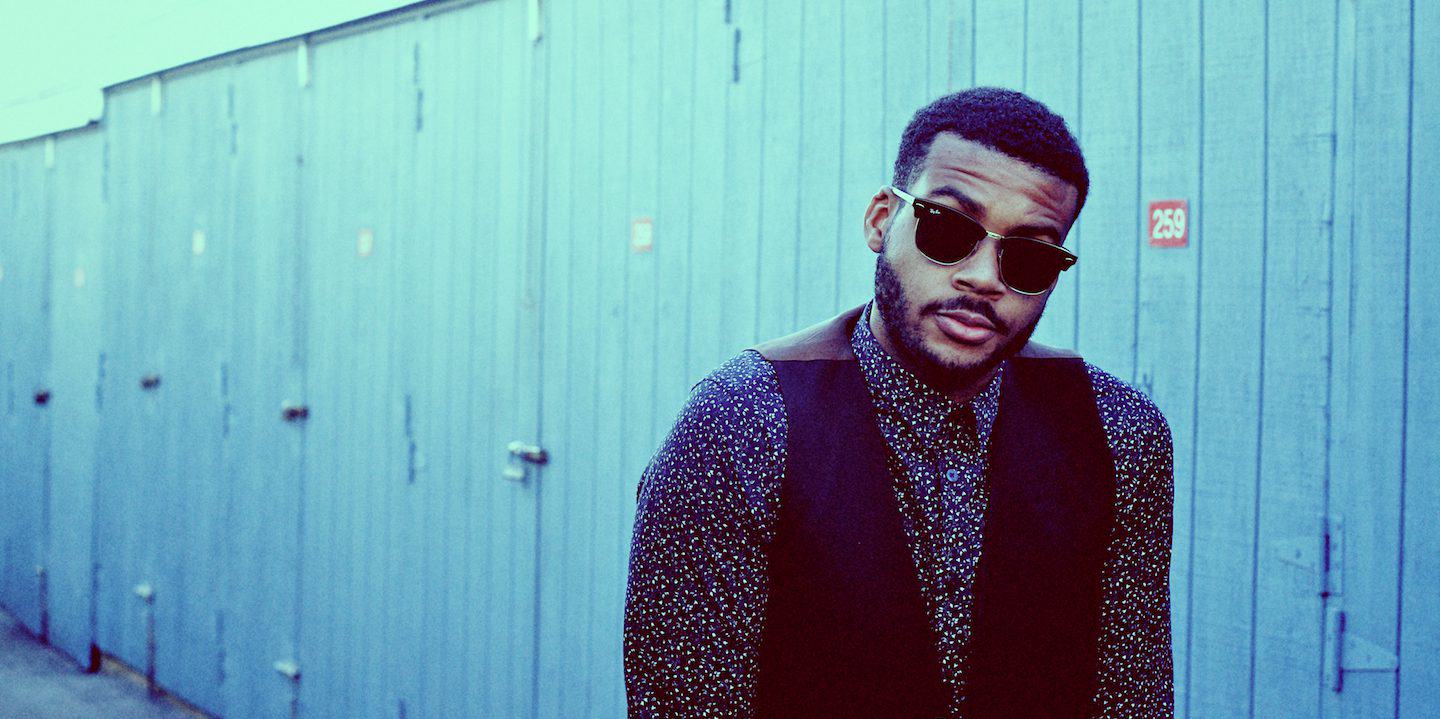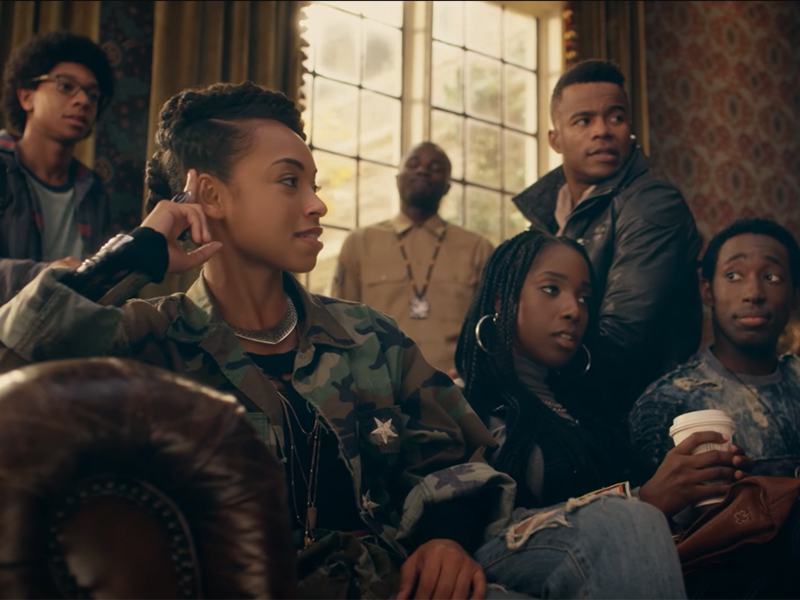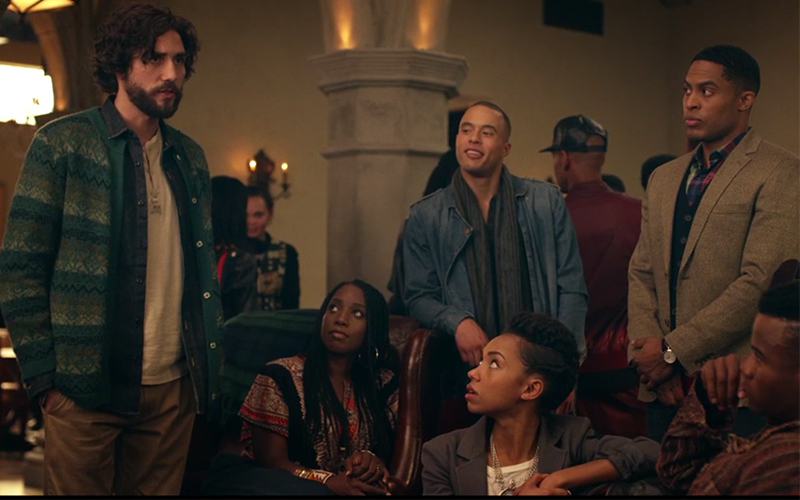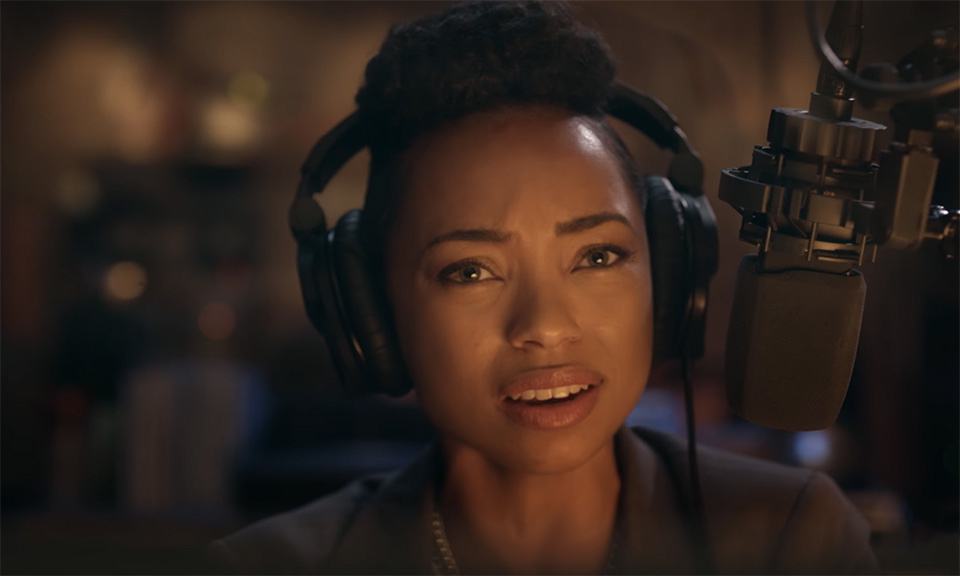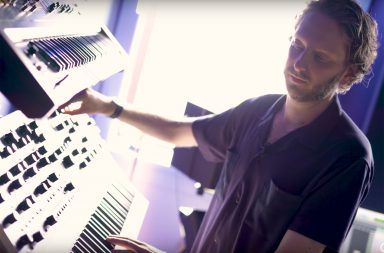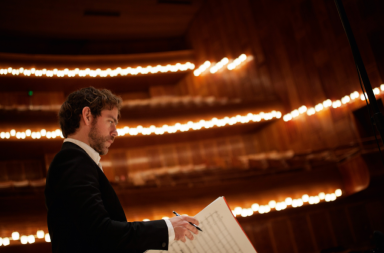Legend has it that Kris Bowers’s musical sensibility started before he was born, due to his parents playing classical music and soft jazz to his mother’s pregnant stomach. Coming from a jazz and classical music background, having grown up to the sound of 90s hip-hop and R&B and influenced by the great film music composers of past decades, Kris Bowers creates a music deeply rooted in tradition but yet open to varied external influences.
In 2011, Bowers won first place in the prestigious Thelonious Monk International Jazz Piano Competition. That same year, he showcased his versatility by appearing on Jay-Z and Kanye West’s collaborative album, Watch the Throne. His first solo album, Heroes + Misfits, which perfectly consolidates all of his musical influences and reflects his eclectic taste, was released on Concord Jazz in 2014.
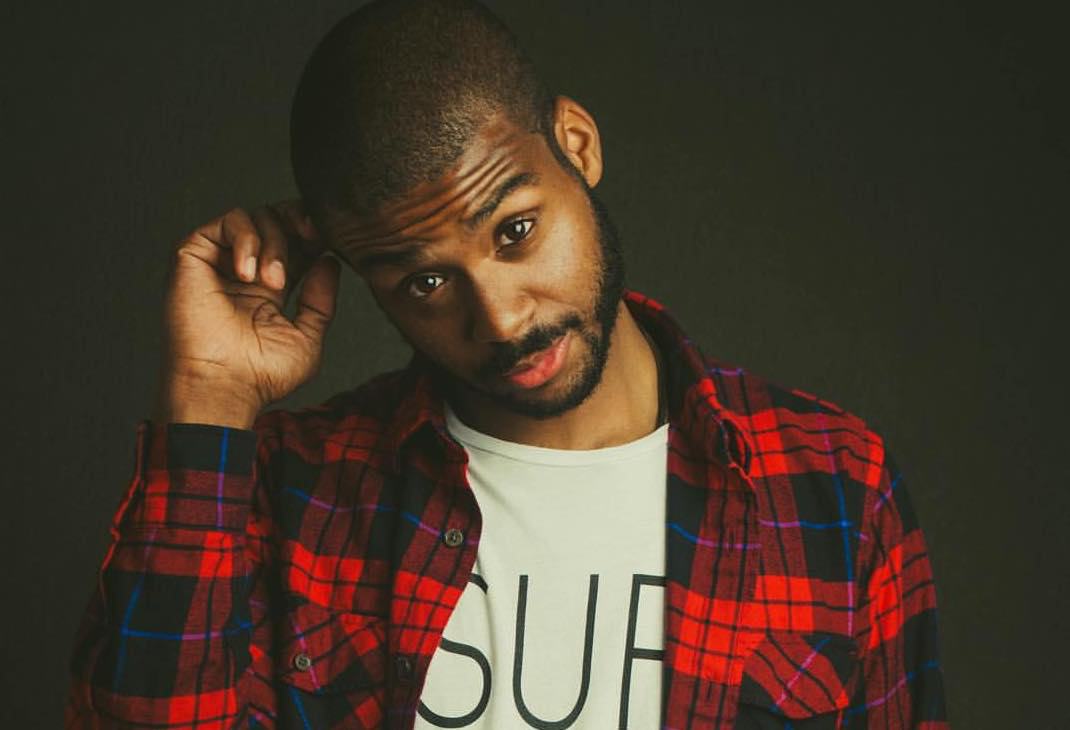
Kris Bowers (Source: Facebook, photo by @heylaureeen)
Kris was still performing on stage when his curiosity led him to film scoring. He kindly chatted with us about his composer work for Dear White People, Justin Simien’s new series produced by Netflix as it follows the 2014 eponymous feature film, also directed by Simien.
The series focuses on the experience of Black students at Winchester, a fictional Ivy League university, as they fight to tackle identity issues after a ‘black-face’ party has been organised on campus. Dear White People depicts both frustration and disillusion among a group of students, but in a terribly funny and ironic way.
Score It: Could you tell us about the creative process of composing the score for Dear White People?
Kris Bowers: The way that I got the job in the first place was pretty interesting. I was sent the show bible and the script from the first episode, along with a playlist that Justin Simien (the show’s creator) had created on Spotify, which had something like 100 tracks on it. Those tracks ranged from Maurice Ravel to Sonny Rollins to Trent Reznor, and I was asked to write a piece of music with all that information. So, what I wrote was a piece of music that, I felt, fused all these different styles together. (You can stream the DWP playlist below)
They appreciated my approach to that task, but when I got the job, we ended up not writing music like that at all. What Justin wanted was a score that had either very traditional classical music, or traditional, 50s-era jazz music. I think that was because he was really inspired by people like Stanley Kubrick and Spike Lee, and the way they use music in their works. Justin wanted the music in the series to be able to exist on its own.
So, early on we decided to create a theme for each character, since each episode follows someone different. Each episode not only introduces that theme for each character, but every piece of music I wrote for that episode starts to become somewhat of a variation from that theme. Therefore, each episode uses that theme only, but it’s masked in all these different variations. So, by the end of the series when all the characters come together, all those different themes come together. But each time I did that, it was in the style of Ravel, Chopin or Dizzy Gillespie etc.
There is a lot of narrative music score in Dear White People, which seamlessly fits with the image. How did you work to score the series with such slick timing?
I think it all really came pretty naturally. For me, I just watched the scene over and over again. Sometimes it’ll have music that had already been chosen as part of temp music, so I followed that lead. They had already edited the temp music to those specific moments, so it just fitted that way. But, even if it didn’t, the way that the show flows made it really easy to figure out how to fit the music in there.
It feels like the music changes depending on the episodes and which character the focus is on. For example, in the fifth episode dedicated to Reggie, the sound is based more on upbeat jazz. On the contrary, calm classical music prevails in the eighth episode that focuses on Lionel. How did you work with director Justin Simien to achieve these different musical atmospheres?
A lot of that was achieved by talking to Justin and having conversations on who these characters were. With Reggie, it was a pretty clear choice that he had to be 50s-era and 60s-era jazz because he’s the most present example of activism in Civil Rights. He comes directly from that era, so we felt that we had to do jazz for Reggie and for that entire episode. That becomes his sound throughout and it starts to blend into some of the other characters’ sounds.
What happens later on the series is that the stylistic aspect/genre of each track or each character’s theme starts to interact with others. So, by the eighth and final episode there’s a scene where Lionel sees Reggie and Sam talking, and his calm, classical music theme takes on a bit of jazz. It all starts to blend a little bit later.
Overall, both the classical and jazz styles of music were specifically chosen by Justin, because he figured that kind of music would be the last thing you might think of when you see young people of colour that are on a college campus. Usually, you associate those types of people with more contemporary-sounding music, so that was why it was important to him that any music that is scored would be very traditional: either jazz or classical music.
The seventh episode of the series focuses on Gabe (Sam’s romantic interest and passionate cinema student). In this episode, there are a few tributes to the history of cinema, with a reference to Jean-Luc Godard’s sophisticated black and white and a fight scene directly inspired by the Blaxploitation genre of the 1970s. Did you draw inspiration from any famous film composers in particular?
My inspiration for scoring those scenes was more due to the fact that I watch so many of those films myself. For instance, the scene which imagines Sam and Gabe feeding each other is directly from a specific film. That’s a very specific scene that Justin is copying, so that leads to a specific track, essentially. My parents watched a lot of films like Shaft (1971) and Troubleman (1972) and other Blaxploitation films from the 70s, so the score for those scenes was pretty easy to create just from knowing that music. Regarding the 60s era foreign film influence in that episode, I’m a huge Jean-Luc Godard fan, and films like The 400 Blows (1959) or Jules and Jim (1962) are also some of my favourites. I figured I’d score these scenes in the style of a hyper-caricature of those films.
In general, as far as the importance of theme in music score is concerned, John Lynch is an inspiration to me because he is probably the master at creating themes for characters, finding different ways to use them and sneaking them into other pieces. Other than him, people like Bernard Herrmann, Howard Shore, Trent Reznor and Thomas Newman are the people I find myself listening to pretty frequently at the moment.
We remarked on some electronic nuances in the score, specifically in episode two. Can you tell us a bit about this? What did you want to achieve?
That was also a choice of Justin’s. He surprised himself by picking some temp music at that party scene which had more electronic elements to it. Before we started the series, we had both agreed that we wouldn’t actually have any of those elements. Then we got to episode two, and Justin said, “Oh, I lied a little bit!”. The more we talked about it, the more I felt that it would fit, because we’re at an actual party and we’re seeing these kids doing what kids do in college: having the chance to experiment with themselves and be free. I think it made a lot of sense to use electronic music instead of jazz music here, since we were no longer really in Lionel’s head. We are following him around, but he’s immersed in this very common college experience. So, I think that’s why this electronic music really fits there.
Dear White People features a strong use of contemporary hip-hop music. Did you collaborate with music supervisor Morgan Rhodes when it came to selecting these tracks?
Actually, not too much. The main interaction we had was when I asked her what some of the tracks were, just because I had never heard of them. She was so great at finding very obscure and lesser-known artists. I actually had a fun time exploring that music myself. A lot of those choices were pretty much Morgan on her own, sometimes with Justin or even Jennifer at Lionsgate, helping select or curate those artists.
There is also a big presence of jazz music in the score, with cymbals and saxophone. What were your reasons behind using a lot of jazz in the score?
There were moments when I felt that jazz was the best way to express a feeling, because it would be a bit more emotive than classical music. Sometimes, when you get emotive with classical music, it can be slightly melodramatic or feel a little too comedic. So, I felt like certain moments in the score, which accent that jazz element, would help avoid those potential situations.
Also, I was strict on myself to keep any of those jazz moments specifically to Reggie. There’s a hint of it in some of Sam’s music score: when Sam reveals something at the end of episode one, you hear a bit of jazz trumpet in the background. In another scene, when she’s talking to Reggie after he has had his episode, there is a saxophone melody there, because Reggie is the most militant, almost aggressive ‘activist’ in the group. But that’s what attracts Sam to him, since Sam has a little bit of that in herself. That’s why Sam’s score is a mix of both classical and jazz music because she is in this weird, in-between place.
What do you think of the current jazz scene revival? Who are the upcoming artists that inspire you the most at the moment?
I think it’s really exciting. It’s great that artists like Kamasi Washington or BADBADNOTGOOD are getting recognition on a much larger scale, and I think that’s because they’re focusing on the feeling that the music gives you. A lot of times, we (the people that come out of jazz school, especially) focus on the ‘theory’ of jazz, or impressing each other with how complex we can write things or how fast we can play. That doesn’t really translate to the normal audience, because they can’t, at least technically, understand what we’re doing. Therefore, when you watch Kamasi Washington’s band play live, there is so much energy and fire in the way they play. No matter how complex they may be playing, that feeling translates. It’s the same with BADBADNOTGOOD. Although they might be improvising and doing technically complex things, it just feels really good and you want to dance to it.
Having jazz in popular culture also makes people more excited about it, with movies like La La Land (2016) or Whiplash (2014), or even hip hop artists like Kendrick Lamar using jazz in their music. All these different things are starting to make audiences a little more curious about the music, and it just so happens that we have some really great young people creating something right now.
Are there any upcoming artists in the jazz scene who you are particularly excited about?
I find myself listening to a lot of music outside of jazz because of what I’m working on, and because I’m around jazz naturally so much that whenever I’m on my own listening to music, I tend to listen to pretty diverse tracks that are way outside of jazz. I’m excited about artists like Braxton Cook (he’s a friend of mine that went to Juilliard who’s really amazing). Samora Pinderhughes is a young piano player who just released an album called Transformation Suite, and I really appreciate how much he’s trying to say something with his music, and there’s an extreme depth to what he’s talking about.
Do you have any exciting upcoming projects that you can tell us about?
I’m working on trying to figure out a way of fusing these two identities of being a jazz performing artist and being a film composer. So, I’m working on a few projects for my own album which concerns that fusion. I’m also taking old silent films and reworking their scores with my own interpretation. We’re also in the process of editing a short film that I have actually written and directed, with the aim of possibly releasing it. What I’m also looking at doing is maybe releasing these small vignettes as EPs that have a very strong tie to their visual aspect. So, whenever we play and do performances, there will be a pretty strong visual element.
Interview prepared, conducted, transcribed and edited by Amalia Morris and Sylvain Pinot.
Edited by Marine Wong Kwok Chuen.
